Updated version, issued 20 February 2020, replacing the press release issued 15 January 2020
15 January 2020 – “All eleven researchers have demonstrated their ability to conduct outstanding scientific research, and we are delighted to welcome them to the EMBO community,” says EMBO Director Maria Leptin.
The EMBO Installation Grants promote the international mobility of scientists, with applicants being required to have spent at least two consecutive years outside the country in which they are establishing their laboratory. The purpose of the grants is to encourage young group leaders to establish their laboratories in countries that find it difficult to compete scientifically with large well-funded research centres in other countries.
“It is our goal to promote excellence in life sciences across all thirty EMBC Member States and beyond,” says Maria Leptin. “We look forward to supporting these talented life scientists at this important stage in their careers, and to contributing to a thriving life science community across all of Europe.”
Installation Grantees receive funding of 50,000 euros per year for three to five years. They also become part of the EMBO Young Investigator Network, through which they gain access to a range of training and networking opportunities.
Funding and selection of Installation Grantees
The Installation Grants are funded primarily by the participating Member States of the European Molecular Biology Conference (EMBC), EMBO’s intergovernmental funding body. The funding bodies of the member states that participated in the 2019 call are the Ministry of Education, Youth and Sports (Czech Republic), the Ministry of Science and Higher Education (Poland), Fundação para a Ciência e a Tecnologia (Portugal) and TÜBITAK (Turkey).
The EMBO Young Investigator Committee carries out the assessment and selection of the applicants and makes recommendations to the Strategic Development Installation Grant Board, which consists of representatives from the participating member states.
The 2019 Installation Grantees will establish five laboratories in Poland, three in Turkey, two in the Czech Republic, and one in Portugal. Each country’s funding body independently decides how many grants to fund each year.
Since the programme’s inception in 2006, it has supported 114 group leaders. This year’s grantees represent six nationalities. The next application deadline for EMBO Installation Grants is 15 April 2020.
More information about the programme is available online: https://www.embo.org/funding-awards/installation-grants
Installation Grantees 2019
| Name | Affiliation | Short project description | |
|---|---|---|---|
 | Panagiotis Alexiou | CEITEC, Masaryk University, Brno, CZ | Deep Learning for Genomic and Transcriptomic Pattern Identification |
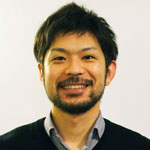 | Yusuke Azuma | Jagiellonian University, Krakow, PL | Engineered Bacterial Compartments for Protein Design and Production |
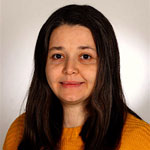 | Bahar Degirmenci Uzun | Bilkent University, Ankara, TR | Roles of primary cilia and the intestinal stem cell niche in obesity |
 | Peter Draber | BIOCEV, First Faculty of Medicine, Charles University, Vestec, CZ | Search for new therapeutic targets to modulate the immune system |
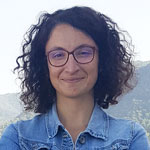 | Ezgi Karaca* | Izmir Biomedicine and Genome Center, Izmir, TR | Identification of Pioneer Transcription Factor Binding Modes to Chromatin |
 | Rafal Mostowy | Jagiellonian University, Krakow, PL | Co-evolution between bacterial capsules and phage tails |
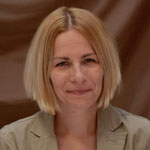 | Aleksandra Pekowska | Nencki Institute of Experimental Biology, Warsaw, PL | Evolutionary and Functional Genomics of Astrocytes |
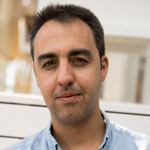 | Pedro Sousa-Victor | Instituto de Medicina Molecular João Lobo Antunes, Lisbon, PT | Mechanisms of tissue ageing and repair: roadblocks to stem cell-based therapies |
 | Grzegorz Sumara | Nencki Institute of Experimental Biology, Warsaw, PL | Signalling cascades in metabolic diseases |
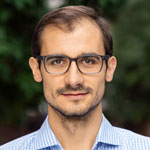 | Piotr Szwedziak | ReMedy Unit, Warsaw University, PL | Cellular architecture of Archaea in the context of eukaryogenesis |
 | Gunes Unal* | Bogazici University, Istanbul, TR | Chemogenetic Investigation of Basal Forebrain Input to the Amygdaloid Complex |
*Ezgi Karaca and Gunes Unal were awarded Installation Grants after the original announcement of 15 January 2020.



